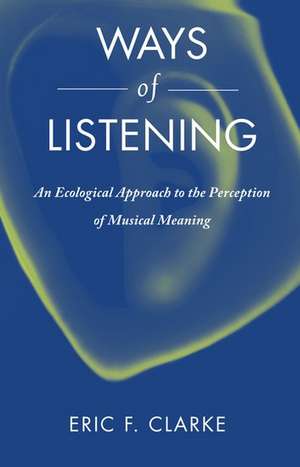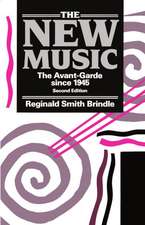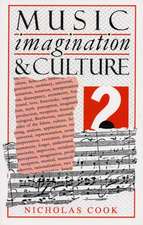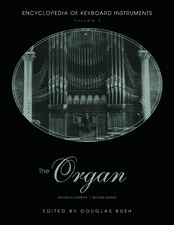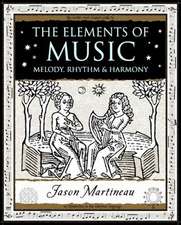Ways of Listening: An Ecological Approach to the Perception of Musical Meaning
Autor Eric F. Clarkeen Limba Engleză Paperback – 26 ian 2012
| Toate formatele și edițiile | Preț | Express |
|---|---|---|
| Paperback (1) | 287.29 lei 31-37 zile | |
| Oxford University Press – 26 ian 2012 | 287.29 lei 31-37 zile | |
| Hardback (1) | 531.95 lei 31-37 zile | |
| Oxford University Press – 18 aug 2005 | 531.95 lei 31-37 zile |
Preț: 287.29 lei
Nou
Puncte Express: 431
Preț estimativ în valută:
54.97€ • 57.54$ • 45.75£
54.97€ • 57.54$ • 45.75£
Carte tipărită la comandă
Livrare economică 20-26 martie
Preluare comenzi: 021 569.72.76
Specificații
ISBN-13: 9780199773909
ISBN-10: 0199773904
Pagini: 256
Ilustrații: 18 music examples
Dimensiuni: 216 x 140 x 15 mm
Greutate: 0.33 kg
Editura: Oxford University Press
Colecția OUP USA
Locul publicării:New York, United States
ISBN-10: 0199773904
Pagini: 256
Ilustrații: 18 music examples
Dimensiuni: 216 x 140 x 15 mm
Greutate: 0.33 kg
Editura: Oxford University Press
Colecția OUP USA
Locul publicării:New York, United States
Recenzii
This challenging, impressive study implies new ways of thinking about music and listening. No other books cover the same territory.
This is the first book to place an ecological approach to perception at the core of music theory. The result is that many problems created by the hitherto dominant cognitive approach simply disappear: emotion and meaning emerge as primary attributes of music (as common sense might always have suggested). Clarke's highly approachable book, with its wide range of musical case studies, will prompt both musicians and psychologists to rethink some of their most basic assumptions.
Using a holistic approach to perception, Clarke captures the particularity and import of that unique aspect of musical sound Roland Barthes called 'the grain of the voice.' Through this, he is able to build a rich and textured account of musical meaning equally applicable to W.A. Mozart and P.J. Harvey. This important and innovative book offers a fresh perspective on music cognition that will be much discussed in the years to come.
This is the first book to place an ecological approach to perception at the core of music theory. The result is that many problems created by the hitherto dominant cognitive approach simply disappear: emotion and meaning emerge as primary attributes of music (as common sense might always have suggested). Clarke's highly approachable book, with its wide range of musical case studies, will prompt both musicians and psychologists to rethink some of their most basic assumptions.
Using a holistic approach to perception, Clarke captures the particularity and import of that unique aspect of musical sound Roland Barthes called 'the grain of the voice.' Through this, he is able to build a rich and textured account of musical meaning equally applicable to W.A. Mozart and P.J. Harvey. This important and innovative book offers a fresh perspective on music cognition that will be much discussed in the years to come.
Notă biografică
Eric Clarke is Professor of Music at the University of Sheffield. He received BA and MA degrees in music from the University of Sussex, and a PhD in psychology from the University of Exeter. He has published on topics including the psychology of performance, the perception and production of rhythm, the semiotics of music, the relationship between language and music, and music and ecological theory. For ten years he was a member of the improvising string quartet The Lapis String Quartet.
